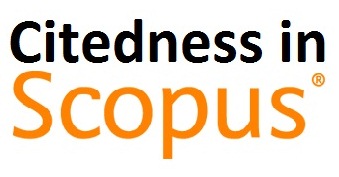The Effect of Information Quality and Service Quality on User Satisfaction of the Government of Kabupaten Malang
DOI:
https://doi.org/10.38043/tiers.v4i1.4328Keywords:
Government, Measurement, Quality of Information, User satisfaction, Website ServicesAbstract
Currently, the government has implemented performance digitization through information systems that are published through official channels owned by the government, one of which is the government of Kabupaten Malang. The objective of this research was to assess or gauge the measurement and test variables and indicators that affect the quality of the Kabupaten Malang government website with the link www.malangkab.go.id/mlg The problem is, not many governments have launched applications paying attention to the factors that influence user satisfaction so that the government has not been able to prioritize repairs and optimize website performance to meet constituent needs that continue to grow in the digital era. This research employs a survey to identify the causal elements that impact the factors contributing to user satisfaction on the website. The causal factors include website service quality, information quality, and usability quality in user satisfaction. Respondents used in this study were website operators for regional apparatus in Kabupaten Malang, consisting of 81 respondents who met the requirements. In obtaining valid and reliable data, multiple linear regression and hypothesis testing were carried out. There are 4 multiple linear regressions that are carried out, namely, multicollinearity test, autocorrelation test, heteroscedasticity test, and normality test. The results of the influence of service quality, and information quality on user satisfaction through usability quality are 5 models that have a significant influence, that is Service Quality to Usability Quality, Information Quality to Usability Quality, Service Quality to User Satisfaction, Information Quality to User Satisfaction, and Usability Quality to User Satisfaction.
Downloads
References
Sun, Hongzheng, et al. 2022. "Clean and green: the relevance of hotels' website quality and environmental management initiatives for green customer loyalty." British Food Journal 124 (12): 4266-4285. 10.1108/bfj-09-2021-1002
Purwanto, Agus. 2022. "The Role of Digital Leadership, e-loyalty, e-service Quality and e-satisfaction of Indonesian E-commerce Online Shop." International Journal of Social and Management Studies 3 (5): 51-57. https://doi.org/10.5555/ijosmas.v3i5.180
Al Haromainy, M. M., et al. 2022. “Classification Of Javanese Script Using Convolutional Neural Network With Data Augmentation.” 2022 IEEE 8th Information Technology International Seminar (ITIS), Proceeding 2023-January: 288-291. https://doi.org/10.1109/ITIS57155.2022.10010262
Djakasaputra, Arifin, et al. 2023. "Influence Of Website Quality And Augmented Reality To Purchase Intention With Satisfaction As Mediation." SEIKO: Journal of Management & Business 6 (1): 730-743. https://doi.org/10.37531/sejaman.v5i2.4117
Sharma, Mahak, et al. 2022. "Exploring post-adoption behaviors of e-service users: Evidence from the hospitality sector/online travel services." Technology in Society 68: 101781. https://doi.org/10.1016/j.techsoc.2021.101781
Prasetya, D. A. and M. Ansori. 2018. Implementasi Fuzzy Logic Pada Short Range Radar Untuk Pengamanan BT (Basis Tempur) Tingkat Regu. Jurnal Teknik Elektro dan Komputer. 5 (2). https://doi.org/10.21107/triac.v5i2.4062
Sari, A.P., Hiroshi Suzuki, Takahiro Kitajima, Takashi Yasuno, Dwi Arman Prasetya, and Abd. Rabi'. 2021. “Deep convolutional long short-term memory for forecasting wind speed and direction.” SICE Journal of Control, Measurement, and System Integration 14(2): 30-38. https://doi.org/10.1080/18824889.2021.1894878
Alabri, Shafiq Darwish, et al. 2020. "Evaluating users satisfaction factors of the customer relationship management system: A study of khedmah system as a single service platform." Journal of Theoretical and Applied Information Technology 98 (05):731-742. http://www.jatit.org/volumes/ninetyeight5.php
Riyantoko, P. A., S. Sanjaya, and L. Hanafi. 2018. "Optimal Control of Neutral Lipids in Microalgae Production with Nutrient Limitation." MATTER: International Journal of Science and Technology 4 (1): 61-72. https://doi.org/10.20319/mijst.2018.41.6172
Riyantoko, P. A., & Muhaimin, A. 2023. A Simple Data Sentiment Analysis using Bjorka phenomenon on Twitter . Nusantara Science and Technology Proceedings 33: 330-336. https://doi.org/10.11594/nstp.2023.3353
Tawar, T., Ari Fajar Santoso, and Yolanda Sabrina Salma. 2022. "Model HOT FIT dalam Manajemen Sistem Informasi." Bincang Sains dan Teknologi. 1 (02): 76-82. https://doi.org/10.56741/bst.v1i02.144
Hariyanti, Annesuska Octvie, Syarif Hidayatullah, and Dwi Arman Prasetya. 2020. "Analysis of the Acceptance and Use of Mobile Banking Services Using the Unified Theory of Acceptance and Use of Technology (Case Study of Bank Jatim Pasuruan Branch)." Research Journal of Advanced Engineering and Science. 5 (1): 254-262. https://www.researchgate.net/publication/339795403
Bijoy, Md Hasan Imam, et al. 2022. "Prediction of internet user satisfaction levels in Bangladesh using data mining and analysis of influential factors." Bulletin of Electrical Engineering and Informatics. 11 (2): 926-935. https://doi.org/10.11591/eei.v11i2.3617
Shaaban, Khaled, et al. 2022. "Measuring users’ satisfaction of the road network using structural equation modeling." International Journal of Sustainable Transportation 16 (9): 792-803. https://doi.org/10.1080/15568318.2021.1934916
Çelik K, Ayaz A. 2022. “Validation of the Delone and McLean information systems success model: a study on student information system.” Education and Information Technologies. 27 (2):1-9. https://link.springer.com/article/10.1007/s10639-021-10798-4
Riyantoko, P. A., Tresna Maulana Fachrudin, et al. 2021. “Analisis Sederhana Pada Kualitas Air Minum Berdasarkan Akurasi Model Klasifikasi Dengan Menggunakan Lucifer Machine Learning.” Seminar Nasional Sains Data (SENADA) 2021, prosiding 2021-October:12-18. https://prosiding-senada.upnjatim.ac.id/index.php/senada/article/view/20/2
Lusiana, Dewi. 2020. “Pengaruh Human Organization Technologi (Hot) Fit Model Terhadap Evaluasi Sistem Informasi Akademik Dosen.” Jurnal Sistem dan Teknologi Informasi Indonesia (JUSTINDO) 5 (1): 44-52. https://doi.org/10.32528/justindo.v5i1.3611
Cong, Jingchen, et al. 2022. "A machine learning-based iterative design approach to automate user satisfaction degree prediction in smart product-service system." Computers & Industrial Engineering 165: 107939. https://doi.org/10.1016/j.cie.2022.107939
Jazil, Afwil, Syarif Hidayatullah, and Dwi Arman Prasetya. 2022. "The Effect of System Quality, Information Quality and Service Quality on Benefits Through User Satisfaction (Case study: iSantri Application)." International Journal of Research in Engineering, Science and Management 5 (12): 23-29. https://www.researchgate.net/publication/366499558
Rahayu, Umi Dwi, and Umar Chadhiq. 2021. "The Effect SAP Application System Quality and the Quality of Information on Individual Performance Dimediate User Satisfaction (At PT. PLN (Persero) Central Java And DI Yogyakarta Distribution Main Units)." International Journal of Economics, Business and Accounting Research (IJEBAR) 5 (2): 553-566. https://jurnal.stie-aas.ac.id/index.php/IJEBAR/article/view/2271/1295
Sari, A.P., Hiroshi Suzuki, Takahiro Kitajima, Takashi Yasuno, Dwi Arman Prasetya, and Rahman Arifuddin. (2022). “Short-Term Wind Speed and Direction Forecasting by 3DCNN and Deep Convolutional LSTM.” IEEJ Transactions on Electrical and Electronic Engineering, 17 (11):1620-1628. https://doi.org/10.1002/tee.23669
Riyantoko, Prismahardi Aji, Dwi Arman Prasetya, and Tahta Dari Timur. 2022. "Simple Sentiment Analysis Using LSTM and BERT Algoritmhs for Classifying Spam and Non-Spam Data." Internasional Journal of Data Science, Engineering, and Anaylitics 2 (2): 32-40. https://ijdasea.upnjatim.ac.id/index.php/ijdasea/issue/view/4
Fahrudin, T. M., et al. 2021. " KEBI 1.0: Indonesian Spelling Error Detection System for Scientific Papers using Dictionary Lookup and Peter Norvig Spelling Corrector." Lontar Komputer : Jurnal Ilmiah Teknologi Informasi 12 (2): 78-90. https://doi.org/10.24843/LKJITI.2021.v12.i02.p02
Riyantoko, Prismahardi Aji, et al. 2020. "Analisis Prediksi Harga Saham Sektor Perbankan Menggunakan Algoritma Long-Short Terms Memory (LSTM)." Seminar Nasional Informatika (SEMNASIF). http://jurnal.upnyk.ac.id/index.php/semnasif/article/view/4135/3094
Sari A.P., D.A. Prasetya, M. M. Al Haromainy, F.P. Aditiawan, A. N. Sihananto, W. S. Saputra. 2022. Analisis Faktor Kesuksesan Penggunaan eBelajar Menggunakan Metode Hot-Fit di STIKI Malang. Seminar Nasional Sains Data (SENADA) 2022, prosiding 2022-November: 92-102. https://prosiding-senada.upnjatim.ac.id/index.php/senada/article/view/54/16
Downloads
Published
How to Cite
Issue
Section
License
Copyright (c) 2023 Dwi Arman Prasetya, Anggraini Puspita Sari, Prismahardi Aji Riyantoko, Tresna Maulana Fahrudin

This work is licensed under a Creative Commons Attribution-ShareAlike 4.0 International License.





















